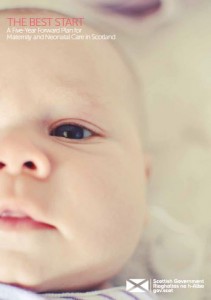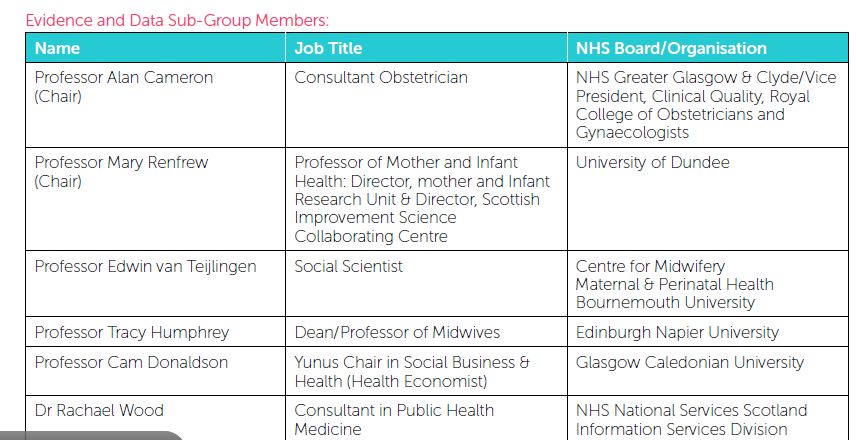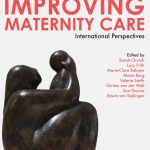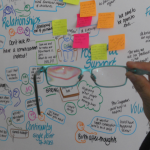 Yesterday the Scottish Government has published its national maternity review ‘The Best Start – A Five Year Forward Plan for Maternity and Neonatal Care in Scotland’. The report has been widely welcomed and gained, among others, the full support from the Royal College of Midwives (RCM). Mary Ross-Davie, RCM Director for Scotland noted: “This is a defining moment for maternity services in Scotland and will be a seismic shift for our maternity services. The plan has the potential to revolutionise maternity care, to deliver safer and better services for women, babies and their families, and to improve the health of our population.”
Yesterday the Scottish Government has published its national maternity review ‘The Best Start – A Five Year Forward Plan for Maternity and Neonatal Care in Scotland’. The report has been widely welcomed and gained, among others, the full support from the Royal College of Midwives (RCM). Mary Ross-Davie, RCM Director for Scotland noted: “This is a defining moment for maternity services in Scotland and will be a seismic shift for our maternity services. The plan has the potential to revolutionise maternity care, to deliver safer and better services for women, babies and their families, and to improve the health of our population.”
The Best Start recognises that maternity and neonatal services matter to the health and wellbeing of Scotland’s people. The report’s underpinning is more of a social model of childbirth as it observes that “The health, development, social, and economic consequences of childbirth and the early weeks of life are profound, and the impact, both positive and negative, is felt by individual families and communities as well as across the whole of society.”
Having lived for 25 years in Scotland I am happy to have made a small contribution to this import report.
Prof. Edwin van Teijlingen
Centre for Midwifery, Maternal & Perinatal Health
 New CMMPH publication on maternity care in Nepal
New CMMPH publication on maternity care in Nepal Review published on BU co-edited academic book
Review published on BU co-edited academic book CMMPH at Poole NHS Maternity ‘Whose Shoes?’ event
CMMPH at Poole NHS Maternity ‘Whose Shoes?’ event New BU publication on maternity care & culture in Afghanistan
New BU publication on maternity care & culture in Afghanistan










 Beyond Academia: Exploring Career Options for Early Career Researchers – Online Workshop
Beyond Academia: Exploring Career Options for Early Career Researchers – Online Workshop UKCGE Recognised Research Supervision Programme: Deadline Approaching
UKCGE Recognised Research Supervision Programme: Deadline Approaching SPROUT: From Sustainable Research to Sustainable Research Lives
SPROUT: From Sustainable Research to Sustainable Research Lives BRIAN upgrade and new look
BRIAN upgrade and new look Seeing the fruits of your labour in Bangladesh
Seeing the fruits of your labour in Bangladesh ECR Funding Open Call: Research Culture & Community Grant – Apply now
ECR Funding Open Call: Research Culture & Community Grant – Apply now ECR Funding Open Call: Research Culture & Community Grant – Application Deadline Friday 12 December
ECR Funding Open Call: Research Culture & Community Grant – Application Deadline Friday 12 December MSCA Postdoctoral Fellowships 2025 Call
MSCA Postdoctoral Fellowships 2025 Call ERC Advanced Grant 2025 Webinar
ERC Advanced Grant 2025 Webinar Update on UKRO services
Update on UKRO services European research project exploring use of ‘virtual twins’ to better manage metabolic associated fatty liver disease
European research project exploring use of ‘virtual twins’ to better manage metabolic associated fatty liver disease